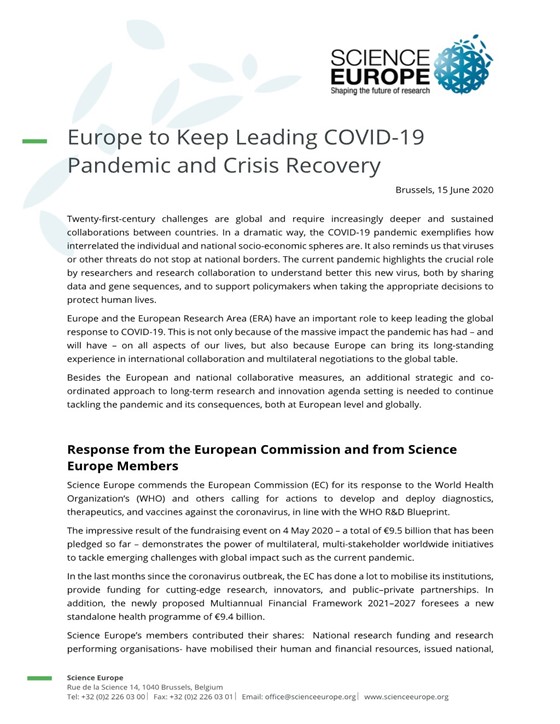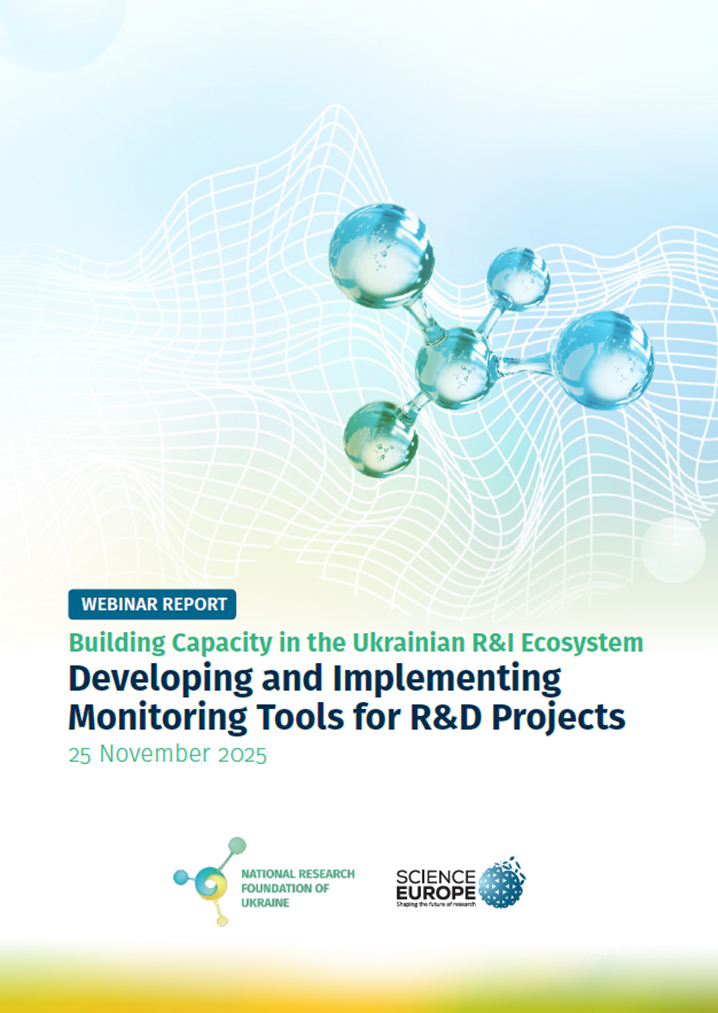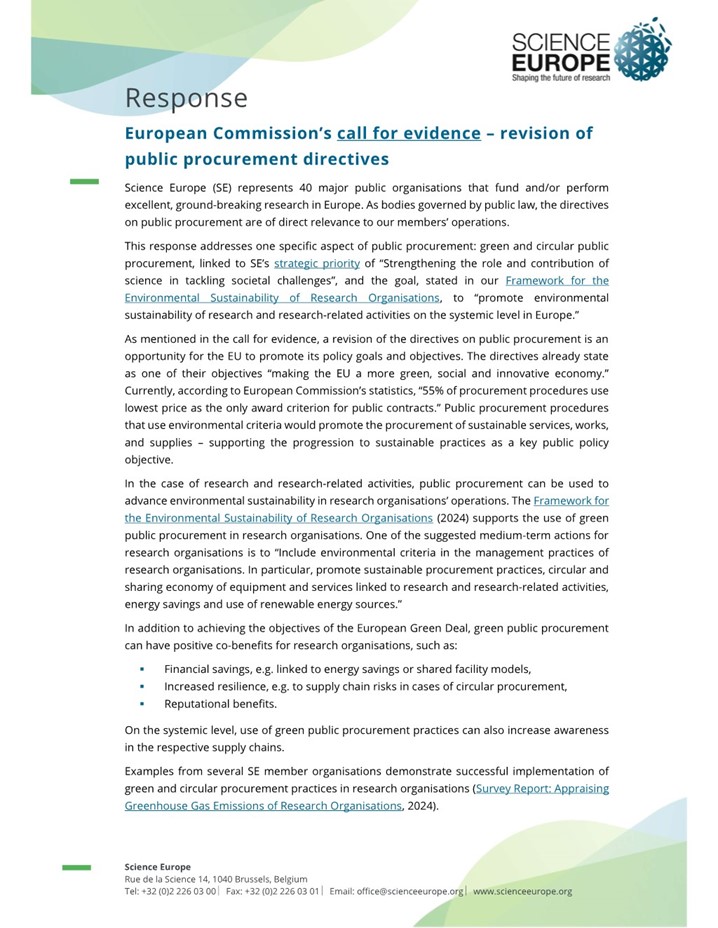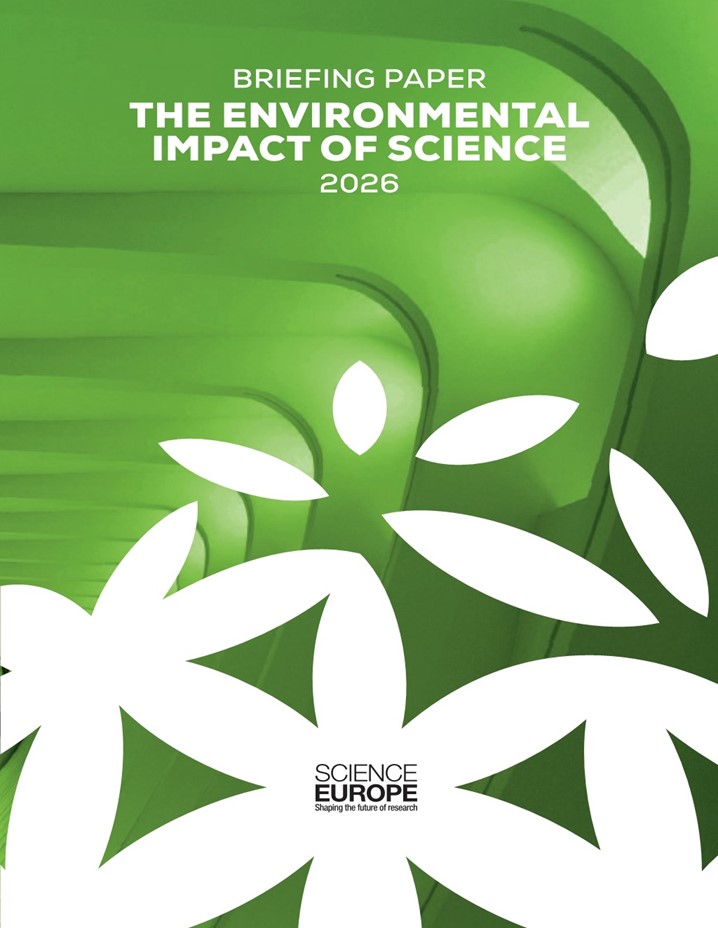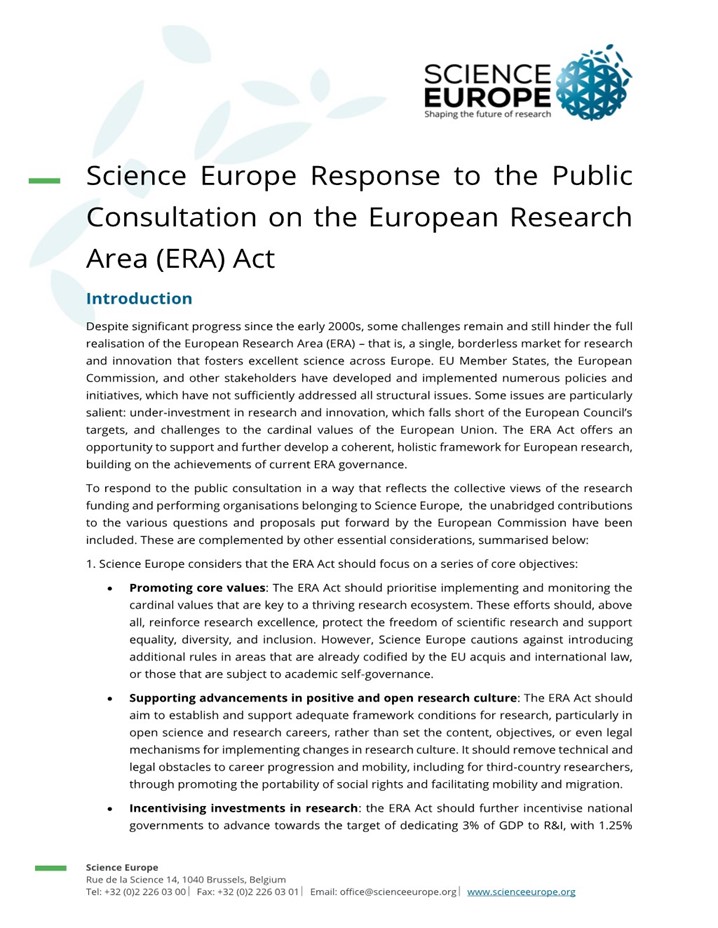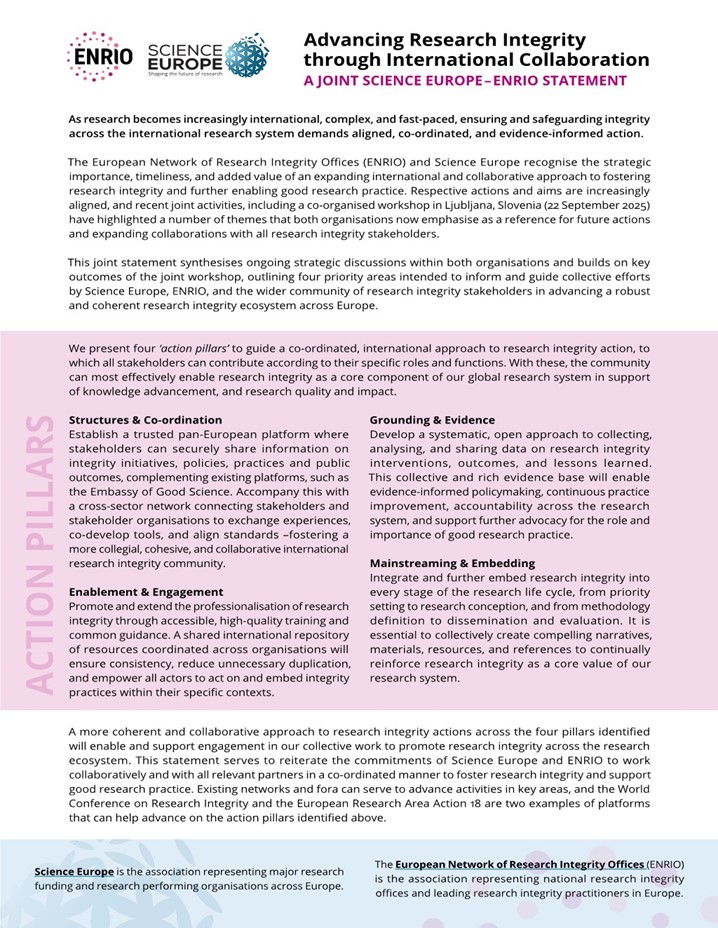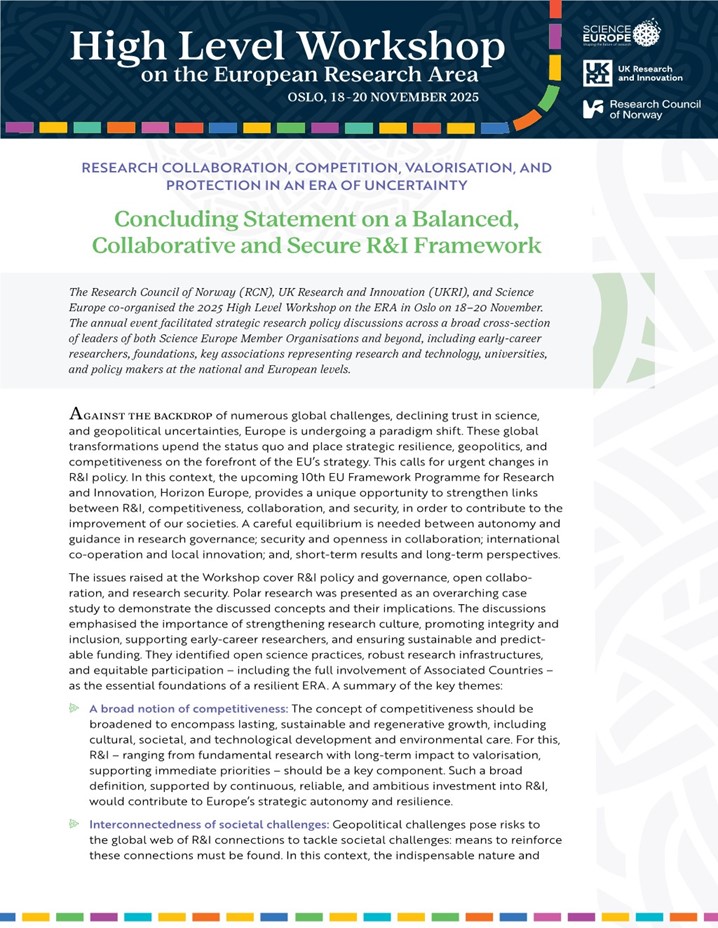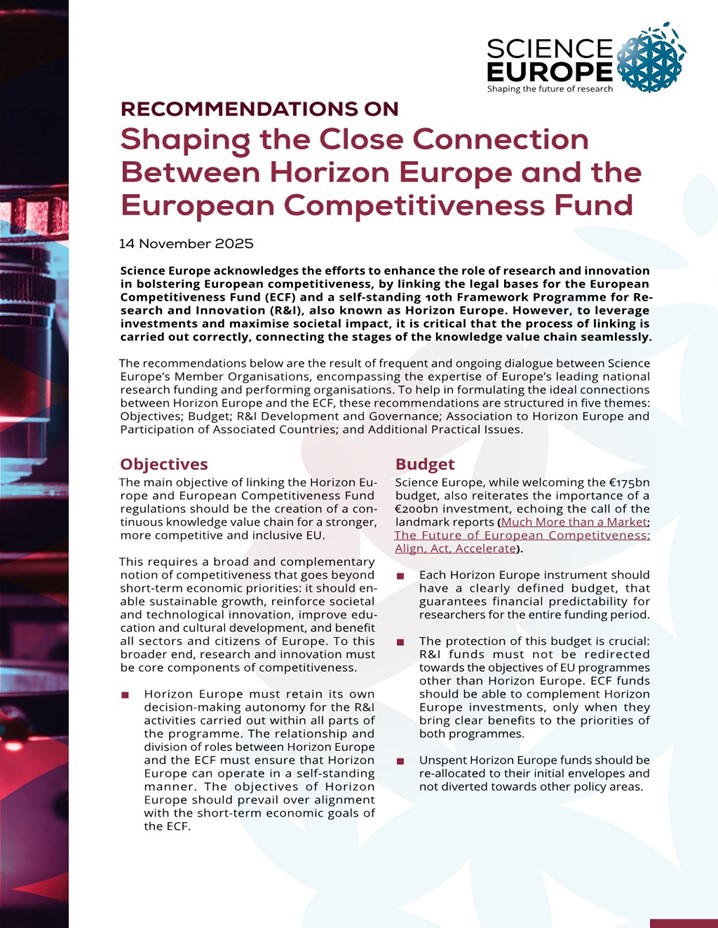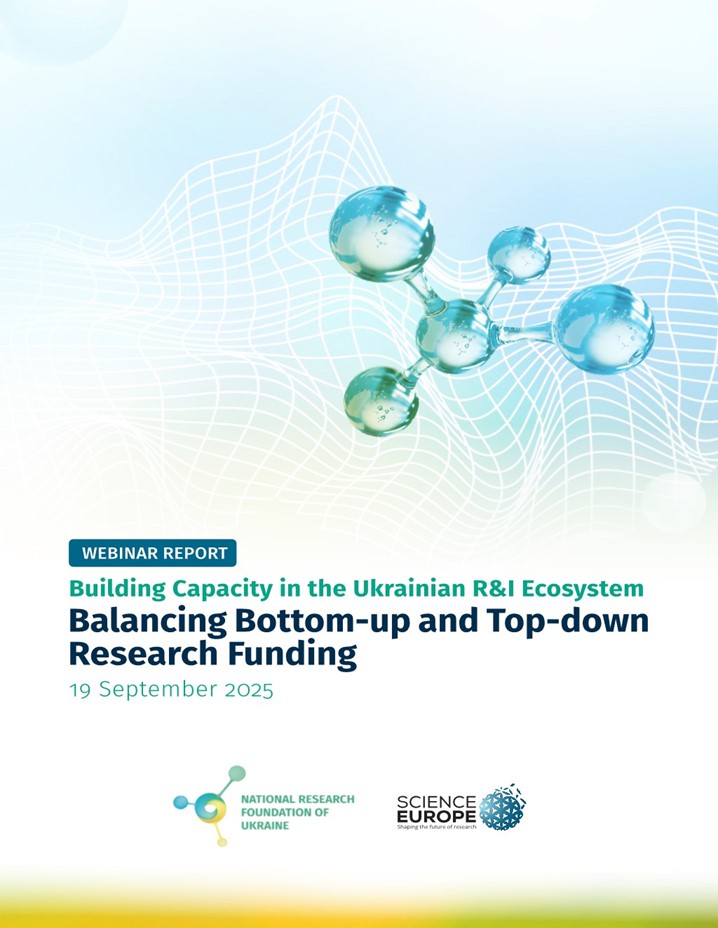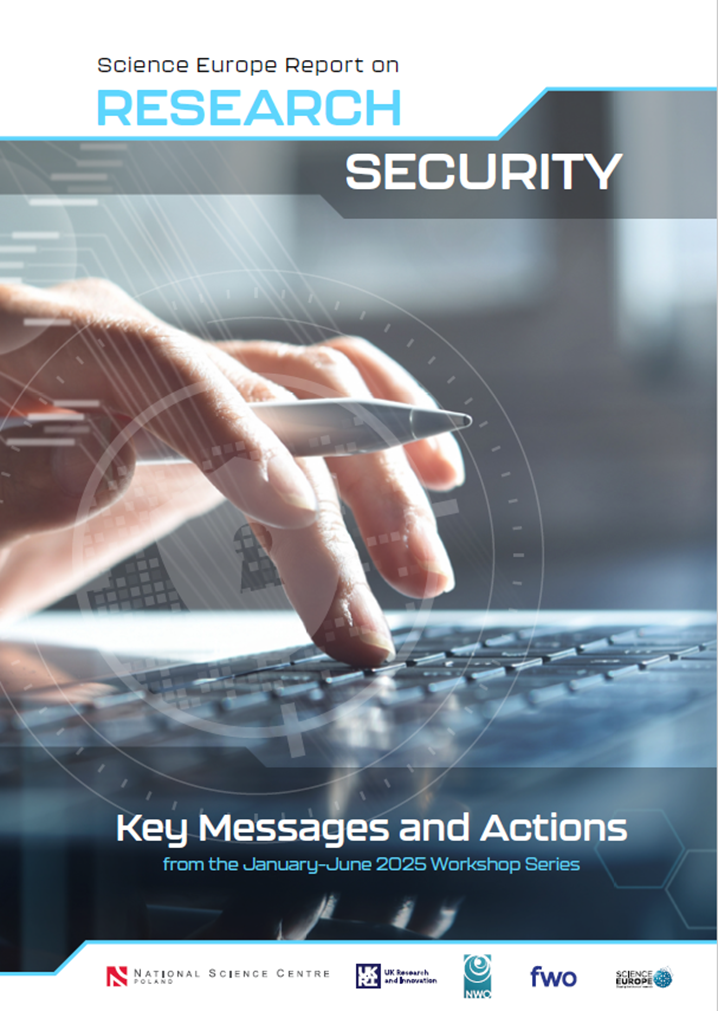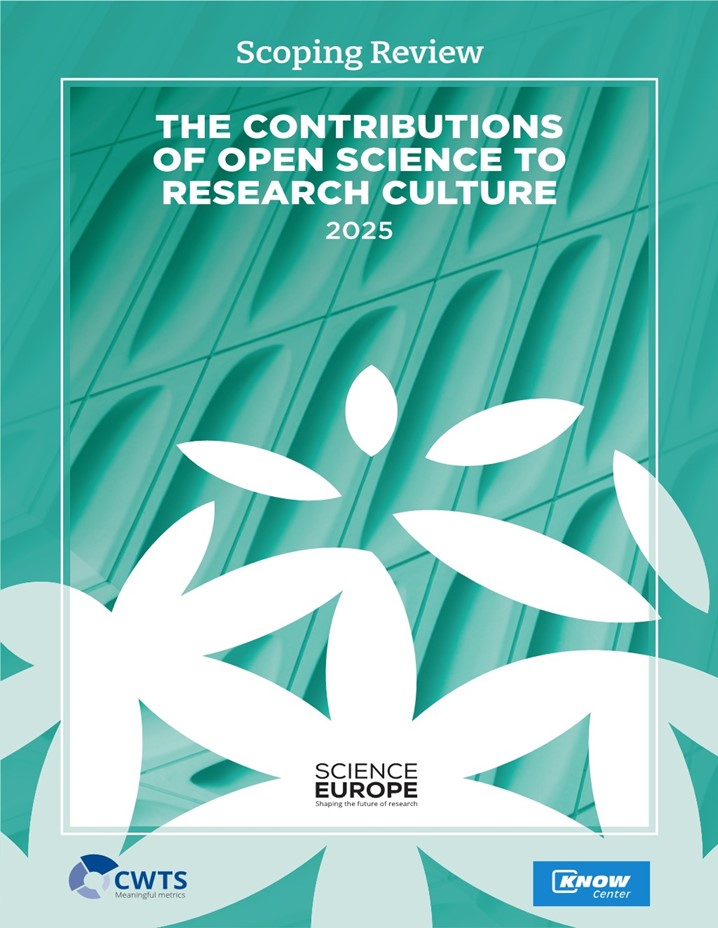Member-only content is available on this page. Please log in to view this content.
- Download
-
Share on
Europe to Keep Leading COVID-19 Pandemic and Crisis Recovery
Science Europe encourages EU Member States and Associated Countries to keep leading European and global projects to tackle the medical, social, and economic challenges brought on by COVID-19.
Science Europe Members Organisations can contribute with their expertise and experience to build the necessary collaborative approaches within Europe and across the world.
Download resourceRelated content
NRFU-SE Webinar Series: Developing and Implementing Monitoring Tools for R&D Projects
This report summarises the discussions and key conclusions of the second webinar in the NRFU–Science Europe Webinar Series 'Building Capacity in the Ukrainian Research and Innovation Ecosystem,' which explored monitoring tools for R&D projects.
Science Europe Response to the Call for Evidence on the Revision of EU Public Procurement Guidelines
Science Europe has submitted a response to the European Commission’s call for evidence on the revision of the EU public procurement directives, focusing on the role of green and circular public procurement in research and research-related activities.
The Environmental Impact of Science
This evidence-informed briefing provides background information on the environmental impact
and explains why it requires serious attention: not only from an environmental perspective,
but also in light of other wider organisational and societal positive co-benefits that research
organisations can realise by strengthening their efforts on environmental sustainability.
Science Europe Response to the Public Consultation on the ERA Act
Science Europe has responded to the European Commission’s public consultation on the proposed European Research Area (ERA) Act, setting out the collective views of its Member Organisations on how the legislation can effectively strengthen framework conditions for research and innovation, while safeguarding academic freedom, institutional autonomy, and the diversity of national research systems.
Advancing Research Integrity through International Collaboration
Science Europe and the European Network of Research Integrity Offices (ENRIO) launch a joint statement that reinforces their shared commitment to strengthening research integrity across Europe.
High Level Workshop Concluding Statement on a Balanced, Collaborative and Secure R&I Framework
This statement presents the overall conclusions from the 2025 High Level Workshop, co-organised by the Research Council of Norway (RCN), UK Research and Innovation (UKRI), and Science Europe on 18–20 November in Oslo, Norway.
It highlights the shared commitment to strengthening a resilient, collaborative, and secure European R&I ecosystem, and outlines the key themes that emerged from the discussions.
Recommendations on Shaping the Close Connection Between Horizon Europe and the European Competitiveness Fund
Science Europe has published a new position statement on how the next EU Framework Programme for Research and Innovation should connect with the European Competitiveness Fund (ECF) to strengthen Europe’s knowledge base and long-term competitiveness,focusing on on five key themes: Objectives; Budget; R&I Development and Governance; Association to Horizon Europe and Participation of Associated Countries; and Additional Practical Issues.
NRFU-SE Webinar Series: Balancing Bottom-up and Top-down Research Funding
This report summarises the discussions and key conclusions of the first webinar in the NRFU–Science Europe Webinar Series 'Building Capacity in the Ukrainian Research and Innovation Ecosystem.' which explored how to balance bottom-up and top-down research funding.
Report on Research Security: Key Messages and Actions
This report provides six key policy messages as the result from a series of workshops, organised between January and June 2025 by the Task Force on Research Security. The workshops dealt with balancing openness, security, and academic freedom with policies and measures to protect national and economic security.
Scoping Review: the Contributions of Open Science to Research Culture
This scoping review examines the contributions and unintended consequences of open science in realising results that align with key research culture values such as equity, openness, integrity, care, collaboration, and autonomy.
Commissioned by Science Europe, this review is the result of a collaboration between CWTS and the Know Center.

